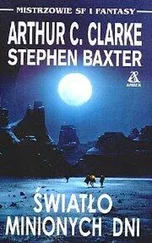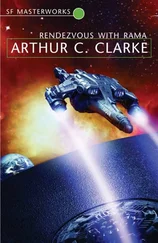Arthur Clarke - A Meeting with Medusa
Здесь есть возможность читать онлайн «Arthur Clarke - A Meeting with Medusa» весь текст электронной книги совершенно бесплатно (целиком полную версию без сокращений). В некоторых случаях можно слушать аудио, скачать через торрент в формате fb2 и присутствует краткое содержание. Год выпуска: 1971, Жанр: Фантастика и фэнтези, на английском языке. Описание произведения, (предисловие) а так же отзывы посетителей доступны на портале библиотеки ЛибКат.
- Название:A Meeting with Medusa
- Автор:
- Жанр:
- Год:1971
- ISBN:нет данных
- Рейтинг книги:5 / 5. Голосов: 1
-
Избранное:Добавить в избранное
- Отзывы:
-
Ваша оценка:
- 100
- 1
- 2
- 3
- 4
- 5
A Meeting with Medusa: краткое содержание, описание и аннотация
Предлагаем к чтению аннотацию, описание, краткое содержание или предисловие (зависит от того, что написал сам автор книги «A Meeting with Medusa»). Если вы не нашли необходимую информацию о книге — напишите в комментариях, мы постараемся отыскать её.
Nominated for the Hugo Award for Best Novella in 1972.
A Meeting with Medusa — читать онлайн бесплатно полную книгу (весь текст) целиком
Ниже представлен текст книги, разбитый по страницам. Система сохранения места последней прочитанной страницы, позволяет с удобством читать онлайн бесплатно книгу «A Meeting with Medusa», без необходимости каждый раз заново искать на чём Вы остановились. Поставьте закладку, и сможете в любой момент перейти на страницу, на которой закончили чтение.
Интервал:
Закладка:
The light had almost gone. The cloudscape had turned purple with refracted sunlight, and in a few seconds that, too, would have vanished. In the last light of his second day on Jupiter, Howard Falcon saw, or thought be saw, something that cast the gravest doubts on his interpretation of the white oval.
Unless the dim light had totally deceived him, those hundreds of thin trunks were beating back and forth, in perfect synchronism, like fronds of kelp rocking in the surge.
And the tree was no longer in the place where he had first seen it.
“Sorry about this,” said Mission Control, soon after sunset, “but we think Source Beta is going to blow within the next hour. Probability seventy per cent.”
Falcon glanced quickly at the chart. Beta, Jupiter latitude one hundred and forty degrees, was over eighteen thousand six hundred miles away and well below his horizon. Even though major eruptions ran as high as ten megatons, he was much too far away for the shock wave to be a serious danger. The radio storm that it would trigger was, however, quite a different matter.
The decameter outbursts that sometimes made Jupiter the most powerful radio source in the whole sky had been discovered back in the 1950s, to the utter astonishment of the astronomers. Now, more than a century later, their real cause was still a mystery. Only the symptoms were understood, their explanation was completely unknown.
The “volcano” theory had best stood the test of time, although no one, imagined that this word had the same meaning on Jupiter as on Earth. At frequent intervals, often several times a day, titanic eruptions occurred in the lower depths of the atmosphere, probably on the hidden surface of the planet itself. A great column of gas, more than six hundred miles high, would start boiling upward as if determined to escape into space.
Against the most powerful gravitational field of all the planets, it had no chance. Yet some traces, a mere few million tons, usually managed to reach the Jovian ionosphere, and when they did, all hell broke loose.
The radiation belts surrounding Jupiter completely dwarf the feeble Van Allen belts of Earth. When they are short-circuited by an ascending column of gas, the result is an electrical discharge millions of times more powerful than any terrestrial flash of lightning, it sends a colossal thunder clap of radio noise flooding across the entire solar system and on out to the Stars.
It had been discovered that these radio outbursts came from four main areas of the planet. Perhaps there were weaknesses there that allowed the flares of the interior to break out from time to time. The scientists on Ganymede, largest of Jupiter’s many moons, now thought that they could predict the onset of a decameter storm, their accuracy was about as good as a weather forecaster’s of the early 1900s.
Falcon did not know whether to welcome or to fear a radio storm, it would certainly add to the value of the mission, if he survived it. His course had been planned to keep as far as possible from the main centres of disturbance, especially the most active one, Source Alpha. As luck would have it, the threatening Beta was the closest to him. He hoped that the distance, almost three-fourths the circumference of Earth, was safe enough.
“Probability ninety per cent,” said Mission Control with a distinct note of urgency. “And forget that hour. Ganymede says it may be any moment.”
The radio had scarcely fallen silent when the reading on the magnetic field-strength meter started to shoot upward. Before it could go off scale, it reversed and began to drop as rapidly as it had risen. Far away and thousands of miles below, something had given the planet’s molten core a titanic jolt.
“There she blows!” called Mission Control.
“Thanks, I already know. When will the storm hit me?”
“You can expect onset in five minutes. Peak in ten.
Far around the curve of Jupiter, a funnel of gas as wide as the Pacific Ocean was climbing spaceward at thousands of miles an hour. Already, the thunderstorms of the lower atmosphere would be raging around it, but they were nothing compared with the fury that would explode when the radiation belt was reached and began dumping its surplus electrons onto the planet. Falcon began to retract all the instrument booms that were extended out from the capsule. There were no other precautions he could take. It would be four hours before the atmospheric shock wave reached him, but the radio blast, travelling at the speed of light, would be here in a tenth of a second, once the discharge had been triggered.
The radio monitor, scanning back and forth across the spectrum, still showed nothing unusual, just the normal mush of background static. Then Falcon noticed that the noise level was slowly creeping upward. The explosion was gathering its strength.
At such a distance he had never expected to see anything. But suddenly a flicker as of far-off heat lightning danced along the eastern horizon. Simultaneously, half the circuit breakers jumped out of the main switchboard, the lights failed, and all communications channels went dead.
He tried to move, but was completely unable to do so. The paralysis that gripped him was not merely psychological, he seemed to have lost all control of his limbs and could feel a painful tingling sensation over his entire body. It was impossible that the electric field could have penetrated this shielded cabin. Yet there was a flickering glow over the instrument board, and he could hear the unmistakable crackle of a brush discharge.
With a series of sharp bangs, the emergency systems went into operation and the overloads reset themselves. The lights flickered on again. And Falcon’s paralysis disappeared as swiftly as it had come.
After glancing at the board to make sure that all circuits were back to normal, he moved quickly to the viewing ports.
There was no need to switch on the inspection lamps, the cables supporting the capsule seemed to be on fire. Lines of light glowing an electric blue against the darkness stretched upward from the main lift ring to the equator of the giant balloon, and rolling slowly along several of them were dazzling balls of fire.
The sight was so strange and so beautiful that it was hard to read any menace in it. Few people, Falcon knew, had ever seen ball lightning from such close quarters, and certainly none had survived if they were riding a hydrogen-filled balloon back in the atmosphere of Earth. He remembered the flaming death of the Hindenburg, destroyed by a stray spark when she docked at Lakehurst in 1937, as it had done so often in the past, the horrifying old newsreel film flashed through his mind. But at least that could not happen here, though there was more hydrogen above his head than had ever filled the last of the Zeppelins. It would be a few billion years yet, before anyone could light a fire in the atmosphere of Jupiter.
With a sound like briskly frying bacon, the speech circuit came back to life.
“Hello, Kon-Tiki , are you receiving? Are you receiving?”
The words were chopped and badly distorted, but intelligible. Falcon’s spirits lifted, he had resumed contact with the world of men.
“I receive you,” he said. “Quite an electrical display, but no damage, so far.”
“Thanks, thought we’d lost you. Please check telemetry channels three, ten, twenty-six. Also gain on camera two. And we don’t quite believe the readings on the external ionisation probes…
Reluctantly Falcon tore his gaze away from the fascinating pyrotechnic “splay around Kon-Tiki, though from time to time he kept glancing out of the windows. The ball lightning disappeared first, the fiery globes slowly expanding until they reached a critical size, at which they time vanished in a gentle explosion. But even an hour later, there were still faint glows around the exposed metal on the outside of the capsule, and the radio circuits remained noisy until well after midnight.
Читать дальшеИнтервал:
Закладка:
Похожие книги на «A Meeting with Medusa»
Представляем Вашему вниманию похожие книги на «A Meeting with Medusa» списком для выбора. Мы отобрали схожую по названию и смыслу литературу в надежде предоставить читателям больше вариантов отыскать новые, интересные, ещё непрочитанные произведения.
Обсуждение, отзывы о книге «A Meeting with Medusa» и просто собственные мнения читателей. Оставьте ваши комментарии, напишите, что Вы думаете о произведении, его смысле или главных героях. Укажите что конкретно понравилось, а что нет, и почему Вы так считаете.












